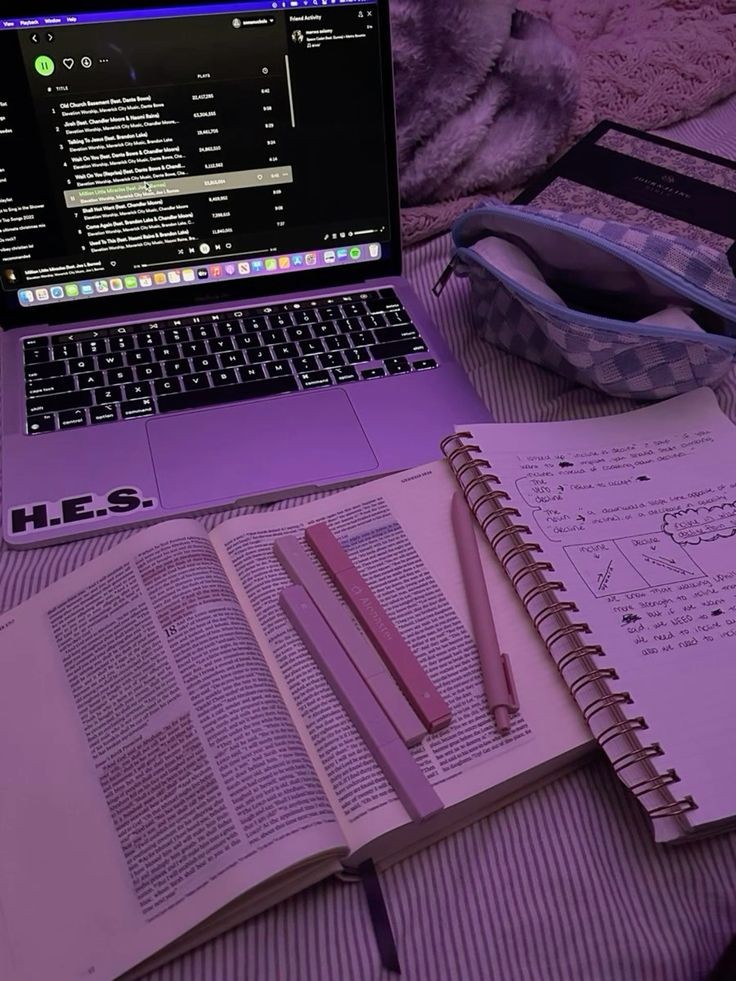Redwood’s students personalize their study methods, ensuring a deep understanding of the material and fostering success in school and beyond.
By Chloe Falcon Barros
As the school year progresses Redwoods students have found that studying serves as the foundation for personal and academic growth and can be beneficial. It helps us develop critical thinking skills, enabling us to analyze information, question assumptions, and form well-rounded perspectives.
This ability to think critically is essential in a world where misinformation and biases can easily sway opinions.

Zurisadai Balanzar ’24 engages herself in extracurricular and academic pursuits. She articulates the significance of active studying shedding light on its paramount importance in shaping one’s future efforts.
She says, “I believe studying is beneficial because it ensures students can identify their strengths and weaknesses within a subject unit, chapter, or technique. Studying allows students to be prepared for exams.”
Throughout the year, students have discovered that studying comes with its challenges.
It requires dedication, discipline, and perseverance. Late-night cramming sessions, stacks of textbooks, and endless assignments can test even the most resilient of individuals.
Yet, through these trials, we develop resilience, time management skills, and the ability to overcome obstacles.
Sofia Contrez, ‘26, shares her tips for staying motivated while studying, suggesting taking breaks and finding personal connections to the material.
Sofia says, “I usually take breaks from studying, so I listen to my body, take a little time to relax, and when I feel fine I go back into studying feeling motivated.”
As the pursuit of knowledge continues to evolve, individuals are increasingly exploring diverse and unconventional methods to enhance their study routines.
From turning study material into catchy tunes to revisiting notes meticulously, Redwood seems to have their preferred approach.
This diverse mix of strategies reflects the unique learning styles and preferences of individuals, highlighting the importance of personalized learning experiences.
As technology continues to offer new tools and platforms for learning, the landscape of study methods is constantly expanding, inviting individuals to explore and experiment with what works best for them.
This diversity in study habits not only fosters creativity and innovation but also underscores the inherent adaptability of the human mind in the quest for knowledge.

Amelia Fultz ‘26 adds to this by saying, “I think that my favorite way to study is that I like this it’s a little silly but I like putting things to songs especially if I need to memorize stuff that always helps me, and just going over notes that I’ve taken so that’s always good.”
Balanzar then adds, “My favorite way of studying is reviewing homework problems and watching topic review videos.”
Exploring subjects that are inherently difficult to study poses unique challenges for students.
For some, math and science subjects can be quite daunting due to their complex concepts and problem-solving nature. Others might find literature or history subjects more challenging because of the need to analyze and interpret texts or remember historical events.
Even foreign languages can be tricky to master with all their grammar rules and vocabulary.
Ultimately, what matters is finding effective study strategies that work for you and seeking support when needed.
Catlin Werner ‘27 recently expressed which particular subjects they find the most challenging to study.
Werner says, “ I think Spanish is the hardest because it involves a lot of memorization.”
Contrez also adds, “I think that History is one of my hardest subjects to study because it’s a lot of facts that you have to memorize”
The impact of mood on studying can also vary across various contexts. For students preparing for exams, a positive mindset can boost confidence and motivation, leading to more effective study strategies and better performance.
Conversely, feelings of overwhelm or pessimism may lead to procrastination, avoidance behaviors, and ultimately, poorer academic outcomes.
Furthermore, the learning environment plays a pivotal role in shaping students’ moods. Factors such as classroom atmosphere, teacher-student interactions, and access to resources can either uplift or dampen learners’ spirits, consequently influencing their engagement and study habits.
Amelia Fultz ‘26 says, “ I usually like to be in a very relaxed mood, at the very least I don’t like to be angry when I’m studying.”
Exploring people’s favorite study songs reveals a wide range of choices, from classical to contemporary tunes. Some prefer calm instrumentals, while others like upbeat tracks.
Platforms like Spotify offer playlists tailored for studying, catering to different tastes. Whether it’s classical elegance or modern energy, the music students choose reflects their personal preferences and enhances their academic experience.
Catlin Werner then shared information about her preferred artists to listen to when she is studying.
She says, “ I usually listen to Nikki Minja when studying because she helps me feel motivated.”
Contrez then adds, “ I like to listen to SZA when I’m studying and she helps me feel relaxed when I am studying.”
As people study students must figure out what works best for them. Whether it’s taking notes, watching videos like Crash Course, or something else, finding your groove helps you get the material and connect the dots.
It’s all about personalizing your approach to learning for better understanding and success.
Balanzar adds more to this by saying, “I’d say to find a method of studying that works best for you. Whether it be recalling information, reviewing notes or lecture recordings, watching Crash Course videos, etc., students should choose a way of studying that allows them to truly understand the material and draw connections.”
Tags: clubs & lifestyles, redwood high school, rhs

